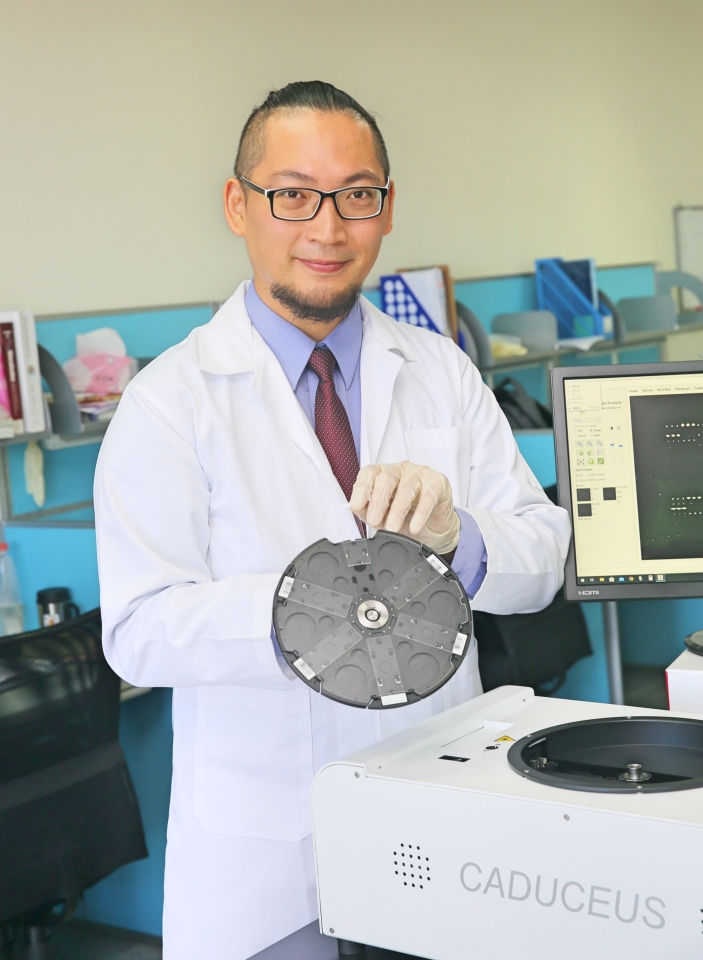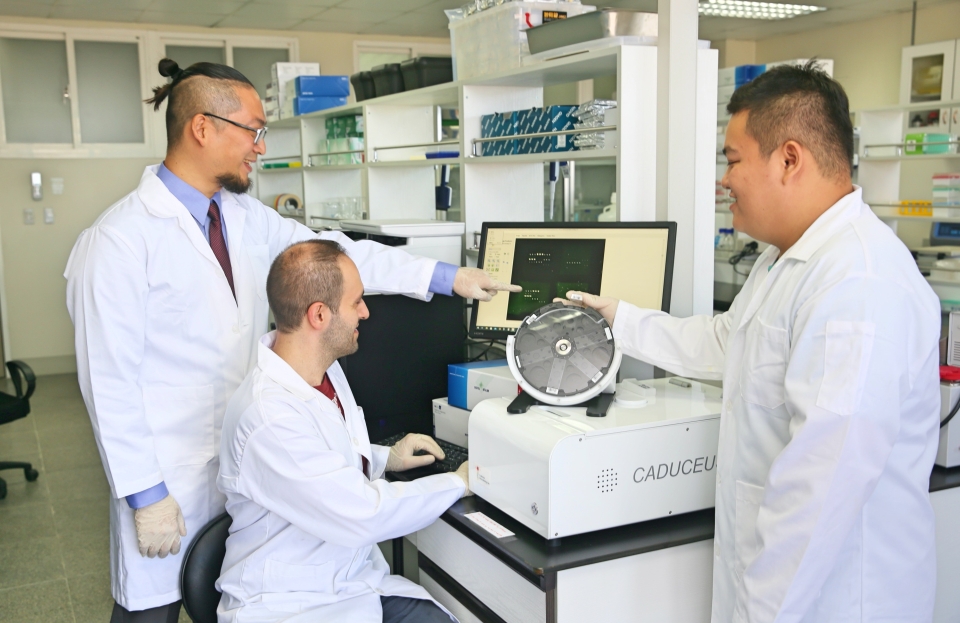National Cheng Kung Univeristy Invents COVID-19 Protein Chip with High Sensitivity and Specificity
2020/06/19 | By CENSAt present, nasopharyngeal specimens are often collected for nucleic acid detection if patients suspected of SARS-CoV-2 infections. This nasopharyngeal swab not only causes discomfort to the subjects, but also increases the risk of infection to the medical practitioner. According to the Shenzhen Hospital Research in China, only 59% of people were diagnosed by the first nucleic acid test. Therefore, it is often necessary to take multiple tests to confirm infection. Other than nucleic acid test, serological test is one of the most preferred methods because it detects the immunological responses against SARS-CoV-2 which can be detected in blood from 7 days of infection to several months after recovery. However, most if not all the serological tests detect based on one viral protein and result in insufficient accuracy due to the variety of the immune responses.

Protein microarray is a high-throughput screening platform, which is very suitable for analyzing the humoral immune responses. During the outbreak of the new coronavirus in January, Assistant Professor Guan-Da Syu (Institute of Biotechnology and Industrial Sciences in National Cheng Kung University) began to design the coronavirus protein microarray. The prototype was completed in February and tested in March. Through a series of production and quality controls, the coronavirus protein array with 100% protein expression and 25-50 pg antibody detection limit was built. The detection limit is 1000-fold more sensitive than rapid tests or ELISA methods which can greatly increase the information harness from blood and reduce the sampling amount. They further used clinical specimens to exam the diagnosis ability, by measuring IgG and IgM in the blood of 30 COVID-19 patients and 30 healthy subjects, they obtained 97% sensitivity and 97% specificity. Each coronavirus protein microarray can detect 14 blood samples at a time and with an average 12 minutes per sample. Since there are many viral proteins on each array, they further narrow down to a set of biomarkers that can be used to produce a new generation of accurate rapid tests.

The protein chip technology was original learned by Assistant Professor Guan-Da Syu from Heng Zhu’s laboratory, Johns Hopkins, United States. In order to contribute his home town, he returned to Taiwan six months ago and encountered this COVID-19 pandemic. With his expertise, he rapidly built and fabricate coronavirus protein array and recently his technology has been licensed to the world's largest human protein chip company, CDI Laboratories in the United States, sold in Europe and the United States. He wants to thank for the support from the NCKU incubation center and the dream plan for the budget support, Professor Chien-Sheng Chen for the equipment support, Dr. Yi-Ling Lin, Dr. Tzong-Shiann Ho, and Yi-Yiu Chou for clinical assistance and guidance, and students Pinxian Du and Batuhan Keskin for the efforts. Coronavirus protein microarray has entered the stage of mass production and technology authorization. The automatic diagnostic systems for protein microarray and new-generation fast screening reagents are the two directions in the future. He believed the coronavirus protein microarray has great potentials in both clinical and pharmaceutical applications.




